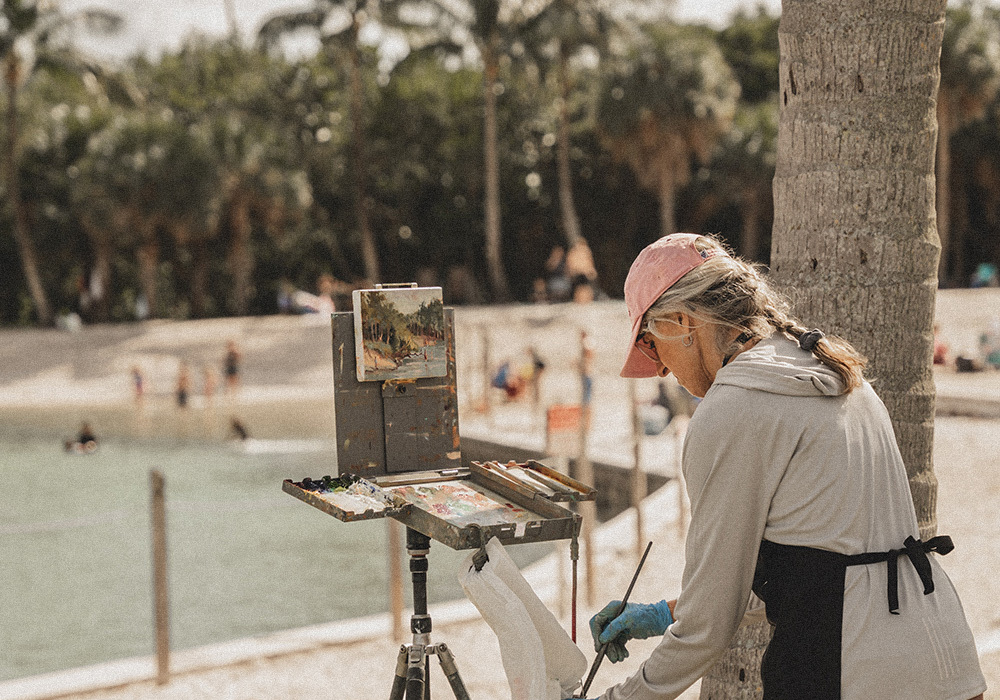
Self-Discovery 101: 6 Helpful Ways To Jumpstart The Process
Discover yourself first.
With how fast your day-to-day life is, have you ever paused and reflected on yourself to find out who you are and what you want in life? Perhaps you’ve always been living your days doing the same hectic to-do checklist and following what people, like bosses, parents, friends, tell you, that you’ve failed to realize that you’re not living for yourself or for what you’ve always wanted. Or maybe, you have goals and dreams in mind, but you fail to notice that most of them are based on what people want from you and not what you want for yourself.
All these could happen if you don’t discover yourself first. Your daily priorities and responsibilities are important, that’s for sure. However, if you’re constantly doing a series of things that don’t spark joy or make you happy, then you’re most likely just living your life for others and not for yourself. Thus, self-discovery is a critical process you must go through to ensure your dreams, talents, personal values, and even your personality are aligned with who you truly are.
How Do You Jumpstart Your Self-Discovery Process?
Self-discovery may seem like an intimidating process, but it’s quite simple because it’s about examining your life and knowing yourself on a deeper level. The best time to discover yourself is today, so to help you begin, here are six useful ways to jumpstart your self-discovery process.
1. Picture Your Ideal Self
Many people unconsciously define themselves through the relationships they have with others. Sometimes, it could also be that they have built themselves according to the guidelines they learned from their parents, friends, or teachers. While there’s nothing wrong with following other people’s advice, you need to ensure you don’t lose sight of your true self.
To gain insights into who you really are, you can begin by picturing your ideal self. Here are guide questions you can ask yourself to visualize your ideal self:
- What do I want to happen in my life?
- What brings me joy?
- What inspires me to be better?
- What’s my purpose?
- What are my values?
As you answer these questions, remember to answer for yourself and not through the influences of other people. The answers will give you a good jumpstart towards exploring aspects of yourself. It will also help if you study your past life astrology. Past life astrology is the study of your natal chart with stars and planets that hint who you were in your past life. Most importantly, it describes who you are in your present life.

2. Know Your Passions
Now that you have an initial picture of your ideal self, it’s time to know and discover your passions. Having a passion for something can help live your life with a strong purpose and a clear direction to what you want to be in the future. A passion can be anything; it can be interest in the field of medicine, enthusiasm for music, love for painting, or support for animal welfare. Remember that a passion doesn’t always have to be related to your professional interests. Sometimes, it’s also about what you want to do during your free time.
For instance, when it comes to professional interest, you’re keen on working in the field of medicine, and so, you pursue a career as a nurse or a doctor. On the other hand, if you’re passionate about music, then making music, such as writing songs or playing an instrument, on your free time is what brings joy to your life. Take some time to discover your passion and use it to enrich your life.
3. Be Brave To Experiment And Try New Things
If you feel that you don’t have any passion yet, that’s perfectly fine. As mentioned earlier, self-discovery isn’t an overnight process in which you get a complete picture of who you are right away. Instead, it’s a long and continuing journey. If you can’t name any passion yet, take this as the perfect opportunity to try and experiment with new things.
Doing something different and new will help you know if you like something or not. For example, perhaps you’ve always been drawn to art but have never attempted to try painting yourself because you’ve always believed you can’t. Go ahead and do something new by signing up for painting classes or watching online tutorials. Who knows, if you like it, it could become your passion. After all, taking risks and being brave to try uncomfortable things can also help boost your self-esteem.

4. Practice Your Skills
Every person has their own set of skills. It can be gardening, baking, crafting, or making home improvements. To jumpstart your self-discovery process, practice your skills as often as you can. The more you practice them, the better you become, and the more these skills will define who you are.
For instance, if you’ve always been good at tending your garden, perhaps your friends or neighbors may ask for your help and pay you to care for theirs. Or maybe, you’re known to be good at baking, and so your friends would always ask you to bake something for their events or parties. Practicing your skills will help you discover who you are and improve your confidence.
5. Keep A Self-Discovery Journal
Keeping a self-discovery journal will help you stay on track in the process of exploring yourself. This way, you’ll have a space to write down your progress and take note of the unhealthy patterns you’re trying to avoid, such as imitating other people’s lifestyles from social media and following tips from magazines or articles.
Having a journal will also allow you to write down the things that are essential to you and your values. You can also write down self-exploring questions and answer them freely in your journal.
Soon, when you have slowly figured out your true self, you can write about your goals and dreams and envision your future. The beauty of journaling is that you’re creating your ideal self through pen and paper, and no one can ever ruin it for you.

6. Consult A Therapist
If jumpstarting your self-discovery process seems too challenging and overwhelming for you, you can consider consulting a therapist. A therapist will provide you with a safe space where you can express yourself and where they can guide you through your self-discovery process. Consulting a therapist doesn’t always mean you’re experiencing mental health issues that are hindering you from self-discovery. Rather, it’s about asking for help to address your concerns regarding your identity, career, or goals.
Conclusion
The self-discovery process will always be different for everyone. However, these tips will serve as your guide to jumpstarting your process.
If the process feels daunting sometimes, remind yourself that self-discovery takes time. It could take a month or even a year. It’s a lifelong process that requires patience. Going through it is similar to the process of getting to know someone new. Start discovering yourself, and you will be who you want to be.











